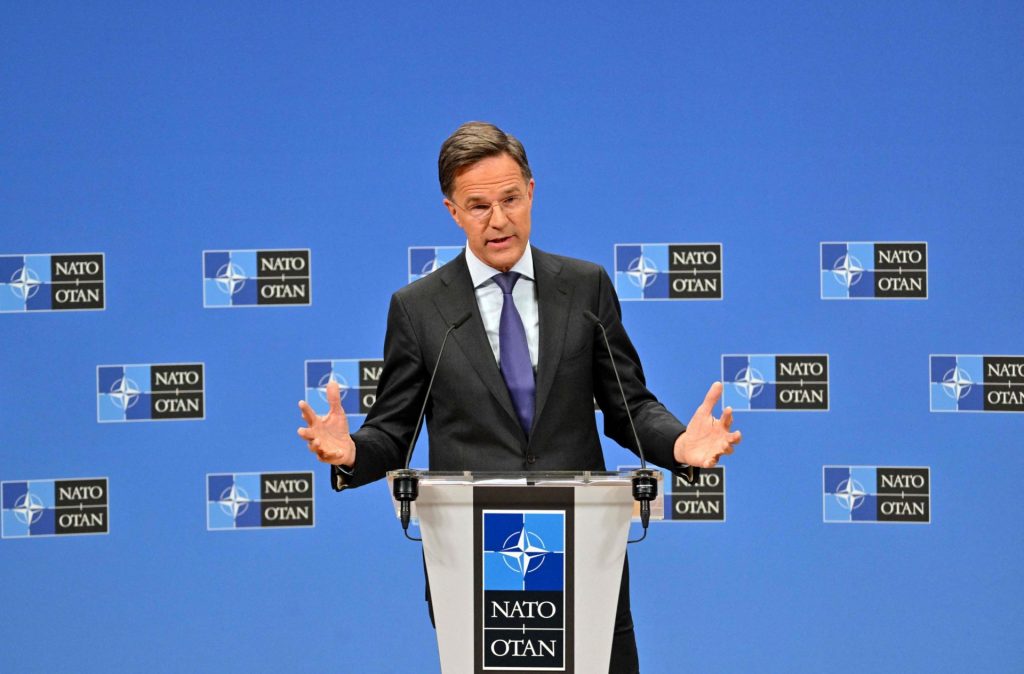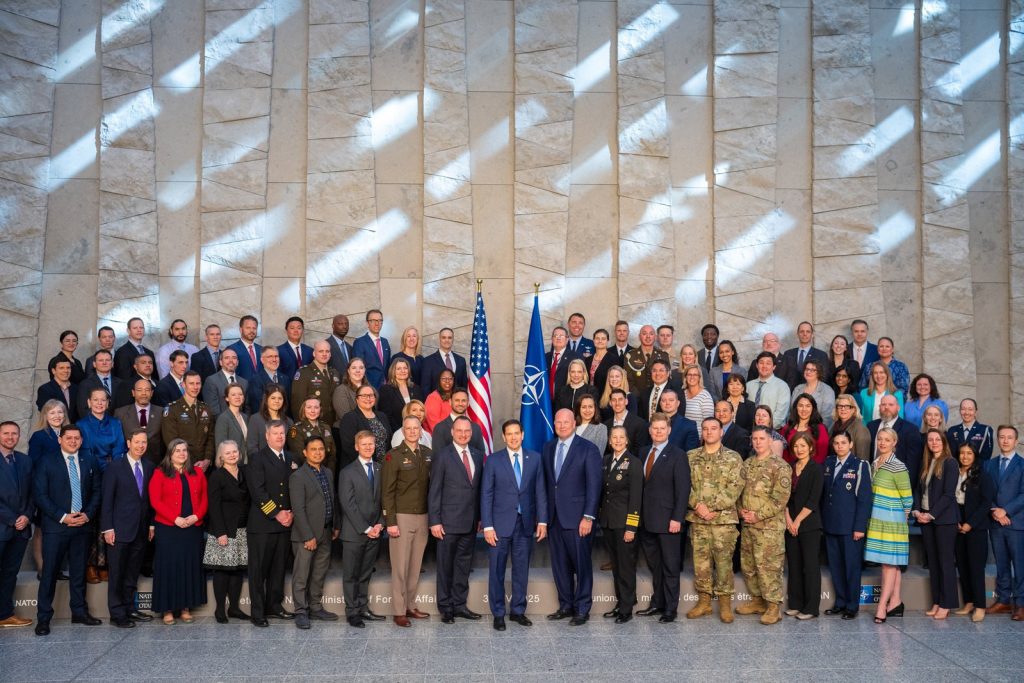North Atlantic Treaty Organisation (NATO) Foreign Affair Ministers wrapped up two days of meetings in Brussels on 4 April 2025. Allied Foreign Affairs Ministers met at NATO Headquarters in Brussels on 3-4 April 2025. The meetings chaired by the NATO Secretary General, Mark Rutte. The Secretary General addressed the media on both days of the meeting.
Meetings were also focused on preparations for the forthcoming NATO Summit in The Hague, defence investment, burden sharing, Allied support to Ukraine, and cooperation with partners. The next NATO summit will be held in 24–25 June 2025 in The Hague.
On the first day of meeting, Ministers of foreign affairs addressed global security challenges, defence spending, and alliance partnerships. The discussions reflect that due to the evolving security threats transatlantic unity is required.
The meetings conducted were focused on NATO’s Indo-Pacific partnerships and underscored the coalition’s growing importance on global security beyond the Euro-Atlantic region. These negotiations aimed to enhance collaboration with crucial partners in addressing collective challenges, such as cybersecurity and strategic competition.
NATO foreign ministers met with Ukrainian Foreign Minister Andrii Sybiha under the NATO–Ukraine Council format, with the participation of the European Union’s High Representative for Foreign Affairs and Security Policy, Kaja Kallas. Discussions were focused on Ukraine’s instant security needs and strategies to achieve a long-lasting peace. On day one of the summit NATO’s Secretary General Rutte while speaking to reporters, acclaimed US efforts toward brokering peace in Ukraine and shed light on the President Donald Trump’s ongoing negotiations.
Rutte stated, “The Americans have broken a deadlock.” Moreover, Rutte said that they were working with the Russians and Ukrainians to get to a peace deal, and probably intermediate to a ceasefire. Further he said that he very much welcomed these efforts and agreed with the red lines for an enduring and lasting peace for Ukraine.
Rutte underscored NATO’s Defence Planning Process as a tool to identify gaps and set targets for increased spending. He highlighted that European allies and Canada have collectively added over €700 billion in defence funding since 2014 but emphasized that further investment is required to counter threats effectively.

Rutte further expounded, “Look at what the Germans have announced, Europeans have announced, many other countries have announced. So, this is probably the biggest increase in defence spending here on the European side of NATO since the end of the Cold War. But we still need more. So that will be discussed.”
According to Rutte, the recently imposed US tariffs, announced by President Donald Trump, do not establish a violation of NATO treaties. Rute spoke after a meeting with NATO foreign ministers in Brussels and addressed concerns raised by a journalist referencing Article 2 of the NATO Treaty. This article underscores the commitment of member states to “seek to eliminate conflict in their international economic policies and to encourage economic collaboration among themselves.” Rutte clarified that the recent trade measures fall outside the scope of treaty violations as interpreted by the Alliance.
On the day two, Secretary General Rutte emphasized, “as the world grows more dangerous, the need for NATO has never been greater.” He further reiterated the collective resolve of member states, stating, “we are united in our commitment to each other in this Alliance.”
Activities continued with a meeting involving key Indo-Pacific partners— Australia, Japan, the Republic of Korea, and New Zealand. Rutte underlined the increasing interconnectedness between Euro-Atlantic and Indo-Pacific security and cited that the war in Ukraine is a clear manifestation of this convergence. He mentioned, “China, North Korea, and Iran continue to support Russia’s war machine,” and described this alignment as a collective security challenge for NATO and its partners.
The summit concluded on 4th April morning with a session of the North Atlantic Council. Discussions centered on NATO-EU cooperation, enhancing defence industrial capabilities, the evolving situation in the Western Balkans, and continued support for Ukraine.
In his concluding remarks, Secretary General Rutte avowed NATO’s role as the cornerstone of transatlantic security and global stability. He stated, “Through the years, working together, Allies have delivered security through strength. From all I heard during the last two days, we are well on track to continue delivering well into the future.”


